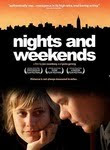
Woodstock: 3 Days of Peace & Music (Michael Wadleigh, 1970) [10]
There is no doubt in my mind that without Woodstock the film, Woodstock the event would not have nearly the cultural cache it has enjoyed over the last forty years. Really, without the film, Woodstock would have probably been an afterthought of the hippie culture, a music festival where a lot of kids showed up, it rained, and almost everything else went wrong, from the throngs of people closing down roads, to not enough food, to bands going on at crazy times. It's a testament to Wadleigh's film that Woodstock and Woodstock are documents of a defining time in a culture that was essential to understanding America in the latter half of the 20th century. It's come to signify something a lot more than just a concert, just what is up for discussion, but there's no doubt that it's the power of cinema that made it so.
Woodstock is the greatest concert documentary ever made but for reasons other than its performances. Wadleigh clearly understood that something greater than a music festival was happening that weekend and he made sure to capture just as much of the surroundings and the people as the performers. There are some good to great performances in the film, Sly & the Family Stone, Santana, Ten Years After, and Joe Cocker among others. But there were nearly as many flat performances as good ones, due to bands often going on closer to daylight than midnight (even though there's a endearing interest in me for Jefferson Airplane's set at daybreak). The performance sequences are helped by the split screen format that Wadleigh adapted for much of the film. It works by allowing the film to cram as many different angles and as much action in the screen space as possible but it also helps intensify the performances. The edits and crowd shots during the Santana performance are practically flawless. It was a style that became imitated and adapted for many music documentaries that followed.
It can be argued that what Woodstock captured other than the music became the more important aspect of the film. What the film did that the press coverage really didn't do was cast a non-cynical eye on what exactly occurred. Clearly the film looks upon the young people with a sympathetic eye, and wants to capture just how peaceful and together the crowd was. What the film help emphasize and contribute to history was that Woodstock was something other than just a festival. Over the years the film has cemented the legacy of Woodstock and all its stands for in the cultural lexicon: how it was the high water mark for the counterculture and how that culture showed it can operate in less than stellar circumstances and operate the way they wanted. I feel some of this is just self-righteous Boomer nostalgia but there's no denying that a lot of shit went less perfect that weekend and how now, everybody that was there looks back with rose-colored glasses. That is more a testament to what the film achieved than what the event achieved because it cemented what Woodstock meant to the culture at large rather than just those who were there.
My favorite moment in the film is when a boy and a girl who hitchhiked to the festival are being interviewed. They're not even at the festival yet so the actual Woodstock experience means nothing here. What the interviewer asks are a series of broader questions that end with essentially, why did you come here? The guy answers that he, like many others, were looking for something. For what, he's not exactly sure but what he does know is that by coming here, maybe it would bring the answer, as was the case for many others. A scene like that shows the power that the music of that time had on the culture. That Woodstock and its acts was a representation of the mainstream youth culture of the late 60s is almost astounding to someone of my generation. I've been to Bonnaroo many times, which is the largest festival in this country but still essentially a niche festival. I guarantee two-thirds of the acts on a Bonnaroo bill would be unheard of by 8 out 10 people, even in my own age-group (18-34). There is no mainstream or unifying youth culture anymore. The Internet, while great in getting musical acts exposed, has fractured the music industry so much that something along the lines of Woodstock could never happen again. The meat head rape extravaganza of Woodstock '99 proved that. What may be Woodstock's greatest testament is that its belongs to an entire generation and not just an enlightened few.
































